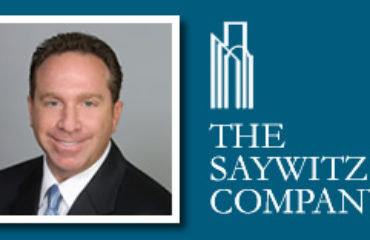
The CORE Network gives local brokers new reach
To compete with national real estate firms, local entrepreneurs have a choice either specialize in a niche or develop a national reach through networking. For one firm, that decision led to the creation of the CORE (Commercial Real Estate) Network, now comprised of more than 40 commercial real estate firms across the U.S, with annual total gross revenue topping $7 billion.
Barry Saywitz, president of the Saywitz Co., in Santa Ana, Calif., wanted to compete more effectively on a local basis and service his existing client base through an affiliation with local brokerage companies across the country.
“We were doing business in more than half of the states,” he recalls, “and in each instance we were cooperating with a local real estate company to assist us in providing local market knowledge and expertise. But these companies had no vested interest in our success, or in our clients’ needs. As a result, I saw the necessity to form an organization of companies that have similar goals and philosophies so that we could network, generate referrals, service our existing clients and build new relationships.
“Representatives of seven companies attended the first organizational meeting of the CORE Network in June of last year. These were Mr. Saywitz; Bishop Hawk of Sacramento, Calif,; Ryon & Associates of Tampa, Fla.; Wolf Commercial Broker age in Los Angeles; Bullock, Terrell & Mannelly in Atlanta; Bussell Realty in Edison, N.J.; and Corporate Facilities Group in Boston. At its August 1997 convention in Chicago, the organization had grown to 42 firms with offices in more than 60 cities nationwide.
Among the firms are some of the most successful companies in the industry.Member firm Trinity Asset Management in San Antonio, Texas recently completed the largest commercial real estate transaction in the history of the city, a deal whose aggregate elements are valued at more than $130 million. The initial discussion that led to the transaction occurred at a network meeting earlier this year.
And still, the network grows. Recent additions include Swearingen Realty Group of Dallas; U.S. Equities of Chicago; Cassidy & Pinkard of Washington, D.C.; Williamson, Picket,Gross of New York City; Chaney Brooks &Co. of Honolulu; and Stiles Realty Co. of Miami.
“Our affiliation with CORE has not only provided us with greater capabilities to service our existing client base but has created opportunities for us to expand locally and nationally,” says William Lawley, principal of the Swearingen Co. and a member of CORE’s board of directors.
The fact that another network of commercial real estate companies is now available indicates how strong the industry has been for the past several years. Nine of the CORE Network member firms were founded in the past decade.
The organization has been managed essentially from its beginning by its board of directors, with the recent addition of M.Scott Rickard as executive director. Mr. Rickard comes to his post with a background in accounting (with Arthur Andersen & Co.) as well as in national marketing, financial analysis and commercial real estate management. He is now responsible for day-to-day operations and marketing of the organization as it continues on its expansion path.
“The number of transactions that have been consummated through CORE in such a short period of time is remarkable,” says Mr. Rickard. “Member firms have completed transactions in all 50 states, Canada, Mexico, Asia and Europe.”
That success rate, he continues, “reinforces the fact that local real estate companies must expand to survive and grow. The CORE Network allows local firms to become national in scope, and ultimately international, without physically expanding their operation.
The organization supports each of its member firms by staying current with changes in technology and trends in the industry. An advisory board has been formed to consult the network, comprising executives from such real estate related industries as insurance, law and accounting.The organization also assists other key industry organizations in their support of legislative issues critical to the well-being of the industry, the executive director says.
“There was never a doubt in my mind that there was a need for an organization like this,” says Mr. Saywitz. “What has been pleasantly surprising is that there are so many real estate firms around the country that have similar goals. The other members of the organization are my business partners, and we work together to grow all of our businesses.”


